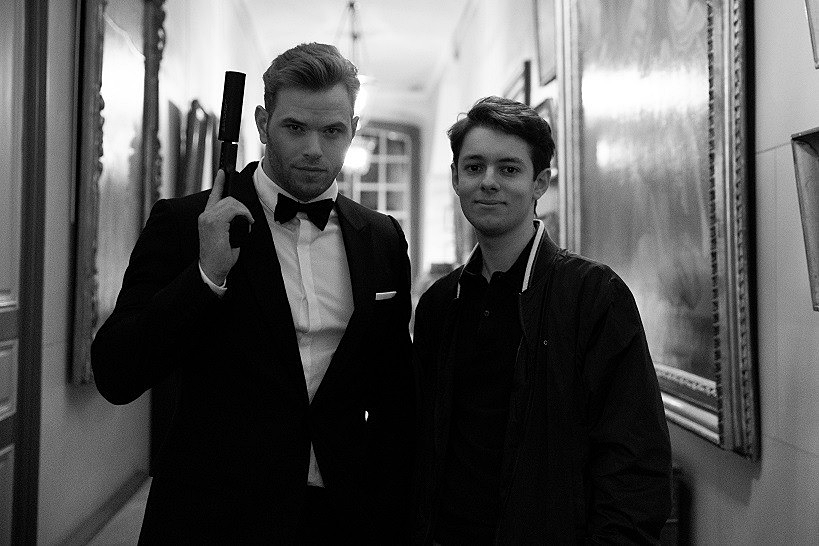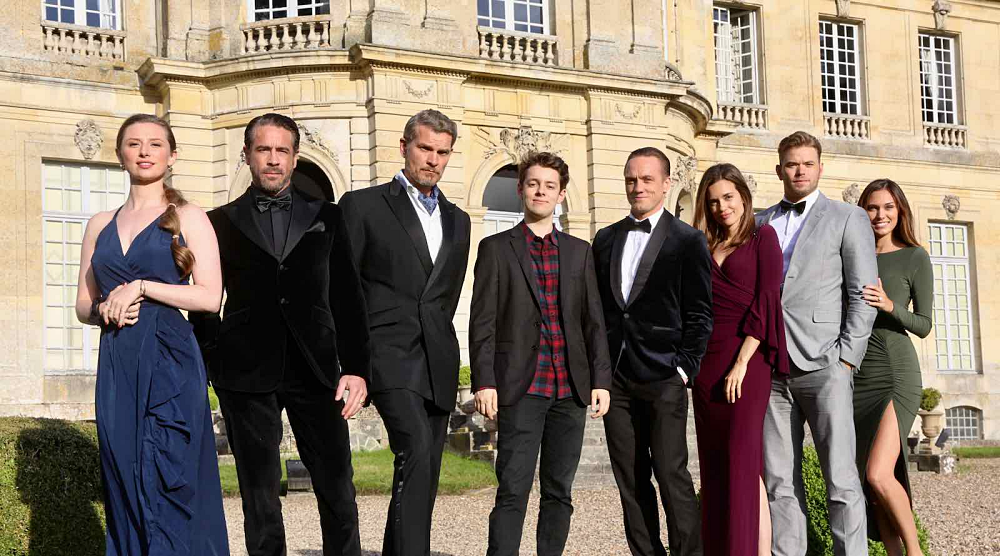Mon autre entretien avec Keyvan
As former President George W. Bush might (but never did) say, the French really need a word for déjà vu. Five years later here I am having another chat with French filmmaker Keyvan Sheikhalishahi, who has lately followed up his short films Vesper and Nox with a third one, the spectacular Divertimento. The clearly busy (and somewhat circumspect) Mr. S has once again been kind and gracious enough to entertain a few of my daft questions. Merci bien pour l’opportunité!
ScottsMovies: Time flies. It’s been five years since you and I were having a chat like this about your film Vesper, which blew a lot of us away, and you’ve certainly been busy since then. After that there was Nox and then Divertimento, which has cut a swath through film festivals worldwide, racking up an impressive number of prizes. Congratulations. Did you possibly foresee yourself being in this place a half-decade ago?
Keyvan Sheikhalishahi: While I foresaw myself making films, I didn’t foresee myself being in this particular place a half-decade ago. I didn’t know that I’ll do films in English language and with such an international cast. If you told me this, I’d have told you, stop laughing! But one year after Vesper, I deeply thought about what I wanted to do and I worked to make the opportunity happen.
 Kellan Lutz and Keyvan Sheikhalishahi
Kellan Lutz and Keyvan Sheikhalishahi
SM: What was your time window for shooting? I read in another interview you gave that Kellan Lutz, Torrey DeVitto and Brittany Gonzales flew from Los Angeles for five days of filming. Was that the extent of time you had to work with for shooting overall?
KS: Yes, the shooting lasted five days.
SM: At one point in the movie there is a particularly striking visual effect. It really contributes to making Divertimento look like a big studio movie. How much time was needed for post-production?
KS: I don’t exactly remember, but it lasted several months. The post-production was very comfortable and worthy of the biggest films. I worked with a wonderful ad and clip production company that helped a lot. Their contribution was decisive and I’m very grateful to have been able to work with them. As for the “striking visual effect,” I worked with a company based in LA that worked on the visual from there.
SM: Your cinematic influences are pretty self-evident so far, and you have spoken of the many filmmakers you admire. Your sensibility seems pretty global. What is there about your film interests and vision that you would say are specifically French? Centuries ago when I studied in Bordeaux, I was a fanatic for the Cine-club. Do those still exist? A prof gave me Qu’est-ce que le cinéma? by André Bazin to read. Are he and his generation of theorists still relevant? Or is the whole world’s cinema laboratory now the multiplex cinemas and the streaming services? (Sorry, that was a lot of questions all jumbled together.)
KS: I think what’s very French in this film is definitely its castle! Cine-clubs still exist, there’s one near where I live, but I’m not sure if they’re as impactful as before. It must be said that moviegoers talk a lot on forums, blogs and other digital tools. But some are still very keen of cine-clubs, for sure. Theory is always interesting to read and study, and I myself studied it at the university. But I think, although it can be a tool, it can’t be higher than a movie. In other words, I personally think a film is successful when it is unique and different from the common reference. I mean, although we can group groups ideas and make a reference, it’s always more interesting when the film has its own logics.
SM: Is there a part of the filmmaking process that is your favorite? The writing? The storyboarding? The actual shooting? In addition to the creative part of it, you also seem to have a gift for publicity and public relations. Do you enjoy that part of it as well?
KS: I really enjoy the whole process. I love writing, because it’s the basis, the foundations and the reason of the film to exist. I also love the pre-production, preparing the film and casting. Of course, shooting it and the post-production, in particular finding the right music and colors.
 The filmmaker flanked by principal cast members
The filmmaker flanked by principal cast members
SM: I’m curious, have you happened to watch the German Netflix series Dark? Though I was resistant to it at first, I finally became seduced by it. The way your films play with darkness and reality makes me think that you might like it as well.
KS: I didn’t watch. I’m curious now!
SM: You disclosed to the Canadian website Le Petit Septième a few months ago that you might have a feature-length film in the works. Do you have any news you can share about that or any other future projects?
KS: I have several projects in the briefcase!
SM: Do you see yourself in the near to mid-term in Los Angeles? Is that an inevitability for someone with your interests and ambitions? Do the myriad stories of Hollywood studio production hell give you pause at all? Or do you see a different path?
KS: Yes, I think being in USA, whether LA or NY, is inevitable. I go regularly.
SM: Congratulations again on your fine work and on the reception it’s received around the world. Tell me, each time a new trophy or plaque comes your way, do you have a particular way of celebrating? Any particular beverage or other indulgence?
KS: Ha ha! I don’t have a particularly way of celebrating. I’m of course happy when a festival gives a new trophy and I share the news with the team.
-S.L., 14 September 2022
If you would like to respond to this commentary or to anything else on this web site, please send a message to feedback@scottsmovies.com. Messages sent to this address will be considered for publishing on the Feedback Page without attribution. (That means your name, email address or anything else that might identify you won’t be included.) Messages published will be at my discretion and subject to editing. But I promise not to leave something out just because it’s unflattering.
If you would like to send me a message but not have it considered for publishing, you can send it to scott@scottsmovies.com.














